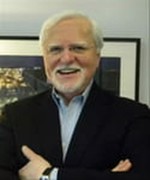The 1 Thing Pastors Do That Puts Congregations to Sleep
- Updated May 09, 2018

The pastor says “Now, in the original Greek, this word means…” and church members roll their eyes. Oh brother, some are thinking.
Or, he might say, “In the original Hebrew, that word is… and it means…”
To the pastors among us, I ask: is this necessary?
I find a great many church members are completely turned off by this little one-upmanship of the preacher. It feels to many like he’s showing off, bragging that he knows some Greek.
I’m not one to say the preacher is showing off. After all, if he studied the language for a few years, clearly learning the Bible in its original forms is important to him; he is now capable of bringing in some of the finer insights from the Word.
But he must not overdo it by trying too hard or expecting too much.
I fear I’ve done this so many times in the past. Forgive me, members of the six churches I’ve served.
When a pastor says, “Now, the verb tense in the Greek is aorist, which indicates the action has already happened and is over with, so therefore…” you can bet people are looking at their watches, wondering how much more of this they have to endure.
Church members simply do not care what tense the verb is in. They do not care that this is the only place in the New Testament where this word is used. They do not care for the finer points of the language study which you the pastor have mastered in Bible school or seminary.
The man in the pew is worrying about his teenage daughter and some of the friends she’s been running with. The woman in the pew is worried about her husband who seems too involved with his job and negligent of the home responsibilities. The grandparents in the pews are thinking about health issues, about financial matters, and about the uncertain future. The teens are thinking about each other.
What they are not thinking about is what tense that Greek verb is in. In fact, it’s a sign of the disconnect that we pastors have with our congregations that we think they are interested.
Five people are. Ninety-five couldn't care less.
Having said that, I now need to retract some of this. Once in a while, a wonderful insight from the Greek is worth the trouble. And even then, at least half the congregation will take a minivacation and skip out on the language study. And that’s all right. Sometimes, an insight is so good, so amazing, it’s worth the trouble to get the riches to just a few of the sharper, more eager, members even if it does bypass the rest of the flock.
Here is one such insight from the Greek, a very favorite of mine…
“In the same way the Spirit helps our weakness. For we do not know how to pray as we should. But the Spirit Himself intercedes for us with groanings too deep for words.” (Romans 8:26)
In the Greek, the little word translated helps is a compound word made up of 17 letters: synantilambanomai.
Here is how the word breaks down…
–syn is the prefix for “together,” or “with.”
–anti means “in front of,” or “against.”
–lambanomai is a form of the Greek verb meaning “to lift.”
Put them together and you get a wonderful picture of what the Holy Spirit does for the child of God who “does not know how to pray as he should.”
He gets on the other side (anti) and together with us (syn) gets under the burden and helps us lift it.
Think of making up a bed by yourself. But what a difference when a friend gets on the other side and helps us.
Ask any man if he has ever tried to pull a crosscut saw alone? But with a friend on the other end, the work gets done.
So, when we go to pray, we are hampered by a great weakness: we do not know how to pray as we should. But the Holy Spirit picks up the slack. He gets on the other side of our prayer burden, and together with us, lifts it to the Throne of Grace.
If that’s not an encouragement to pray, there is none.
You’re not alone when you go to pray. You’re not doing this alone. The Spirit is on the job, assisting you.
And that’s the last Greek lesson you’ll hear from me. Until the next time.
Photo courtesy: ©Thinkstock/seandeburca



















